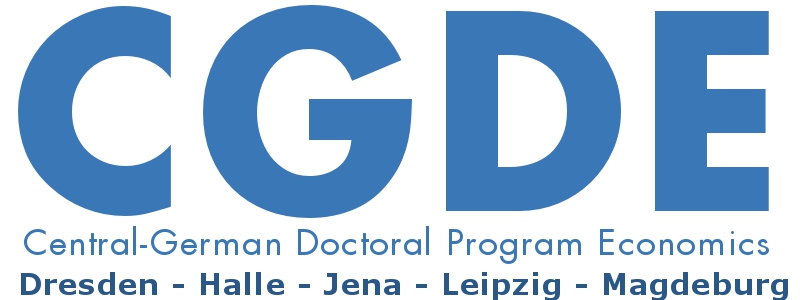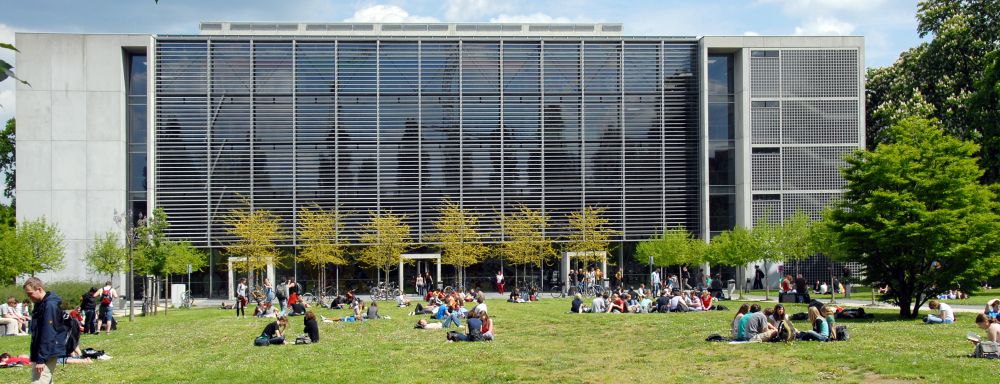Behavioral and non-behavioral perspectives on modern contract theory
Lecturer: Prof. Henrik Lando, PhD (Copenhagen Business School)
Date: August 25-28, 2015
Venue: Otto von Guericke University Magdeburg, Faculty of Economics and Management, 39106 Magdeburg, Universitätsplatz 2,Building 22, A 225 (Fakultätszentrum)
Registration: Please contact Sabine Wolf, E-mail: Sabine.Wolf@ovgu.de, until August 15, 2015
Separate Course Website (for participants only; password protected)
Course Outline
The course discusses aspects of modern contract theory in light of the development of behavioral theory and the incorporation of social preferences in many areas of contract theory. The students will be asked to take active part in the discussions in class, and at times to present key ideas of the articles below. Thus, the course will include presentations by the teacher, presentations by students, and dialogue in class.
Time Schedule
Tuesday, August, 25: 10am – 5pm
Wednesday, August, 26: 9am – 4pm
Thursday, August, 27: 9am – 4pm
Friday, August, 28: 9am – 4pm
August 25: Some theories of fairness, reciprocity, equality and the management of self-beliefs
Rabin’s model of fairness as reciprocity
Rabin, M. (1993) “Incorporating fairness into game theory and economics”, American Economic Review, 83, 1281-1302.Interdependent preferences and reciprocity
Sobel, J. (2005) “Interdependent preferences and reciprocity”, Journal of Economic Literature, 43 (2),392-436.Self-beliefs as assets
Benabou, R., and J. Tirole (2009) „Over My Dead Body: Bargaining and the Price of Dignity.“ American Economic Review, 99 (2), 459-465.
August 26:Traditional and behavioral theories of moral hazard
Milgrom-Holmstrøm’s multitask model without social preferences
Holmstrøm, B. and P. Milgrom (1991) “Multitask Principal-Agent Analyses: Incentive Contracts, Asset Ownership, and Job Design”, Journal of Law, Economics, & Organization, 7 (special issue), 24-52.Application to the theory of the firm
Holmstrøm, B. and P. Milgrom (1994) “The firm as an incentive system”, American Economic Review, 84 (4), 972-991.The multitask model including behavioral assumptions
Fehr, E. and K.M. Schmidt (2004) “Fairness and Incentives in a Multi-Task Principal-Agent Model”, The Scandinavian Journal of Economics, 106 (3), 453-474.
August 27: Traditional and behavioral theories of adverse selection
The basic Rothschild-Stiglitz model of adverse selection in the insurance market
Rothschild, M. and J. Stiglitz (1976), “Equilibrium in Competitive Insurance Markets: An Essay on the Economics of Imperfect Information”, The Quarterly Journal of Economics, 90, 629-649.
Adverse selection and frozen markets in the financial crisis
Tirole, J. (2012) “Overcoming Adverse Selection: How Public Intervention Can Restore Market Functioning”, American Economic Review, 102, 29-59.
On optimal rules of misrepresentation in insurance contract law
Lando, H. (2014) „Optimal Rules of Negligent Misrepresentation in Insurance Law„, University of Oslo Faculty of Law Research Paper No. 2014-39.
The adverse selection theory; fraud and social preferences
Von Bieberstein, F. and J. Schiller (2013): “Contract design and insurance fraud: an experimental investigation”, Working Paper.
Guilt aversion and pre-play communication
Charness, G. and M. Dufwenberg (2006) “Promises and partnership”, Econometrica, 74, 1579-1601.
August 28: Traditional and behavioral theories of incomplete contracts
The general theory of ‚hold-up‘ or underinvestment
Hart, O. and J. Moore (1988) “Incomplete Contracts and Renegotiation”, Econometrica, 56, 755-785.
Theories of relational contracts
Levin, J. (2003) “Relational Incentive Contracts”, American Economic Review, 93, 835-857.
Contracts shaping expectations
Oliver Hart & John Moore (2008) „Contracts as Reference Points„, The Quarterly Journal of Economics, 123(1), 1-48.
Empirical evidence on renegotiation and hold-up
Iyer, R. and A. Schoar: “Incomplete Contracts and Renegotiation: Evidence from a Field Audit”
Theories of renegotiation and social preferences
Schmidt, B. and K.M. Bartling (2014) “Reference Points, Social Norms, and Fairness in Contract Renegotiations”, Journal of the European Economic Association, forthcoming.
A behavioral perspective on risk allocation in contract
Lando, H., Risk allocation and the risk of conflict, Unpublished Working Paper.























